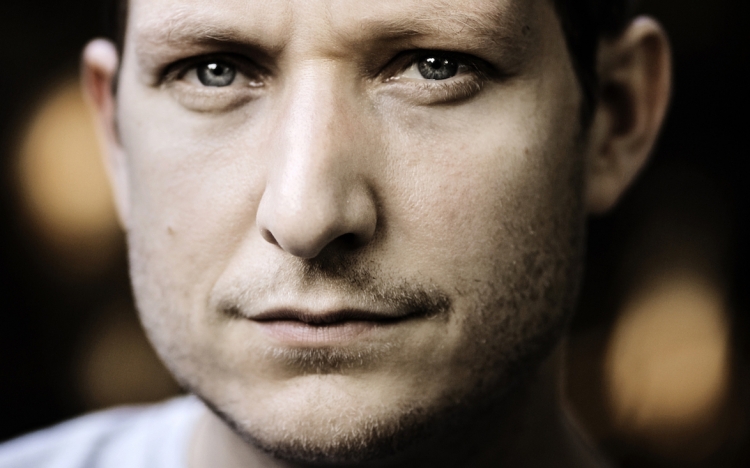
This year’s Danish Oscar candidate, of a title as simple and indicative as A War, is trying to tackle an important subject with as less stereotypes as possible. A realistic portrayal of a soldier, court martialled in Denmark after a mission in Afghanistan and a seemingly wrong decision, is a complex depiction of life outside direct war actions.Tobias Lindholm has written and directed a gripping combination of a psychological thriller, court, family and primarily personal drama dealing with political and personal moral issues regarding the consequences of war. Nino Kovačić interviewed the director, and the film is scheduled this evening for 9.30 at Europa Cinema.
What made you focus on the subject of Danish soldiers in Afghanistan?
Many years ago I decided to make a film about the Danish involvement in Afghanistan and wanted to explore and discuss the complexity of Danish war involvement. I wanted to live behind all the pros and cons, good and evil, heroes and villains, and focus on the grey areas. I sought for a specific point of view and in 2012 read an article about an officer who said, before leaving for Afghanistan for the second time, that he is not afraid to die, but is afraid of being court martialled when he returns home.
How did the research for the film go? Did the Danish army help you?
I always try to encapsulate myself in the world I am portraying. Therefore, I spoke to everyone who could be of help with the understanding of the world I wanted to explore. I made a thorough research among Danish soldiers who spent time in Afghanistan and their families and Afghan refugees in Helmand. Yes, Danish army officers were also of great assistance, first of all the attorney who took part in defending the soldiers. Their professional knowledge and details of their experiences contributed to the plausibility of A War.
What was it like to work with professional soldiers on the set? Were they ready for acting challenges?
I think the biggest challenge was for them to realise that they don’t have to be actors. I didn’t want them to act, I wanted them to respond. The best thing about a soldier is that they did the preparations hundreds of times and are trained to keep calm in chaotic situations. However, as calm as they are (because they are familiar with the situation), they are always cautious as they count on the unpredictable. To me, as a director, this is an amazing quality, especially for the set. After long rehearsals, they finally forgot about the camera and went with the flow.
Do you have an ethical standpoint on your protagonist Claus?
My standpoint is based on facts, because he was a commander in charge of 135 people in a war – this is the basic assumption of his life at the beginning of the film, the moment we meet him. His responsibility and morality in the field are both his strength and his weakness and, given the situations, they can easily tip the scale one way or the other. Of course, on a personal level, the decision to take part in a war mostly affects his family in Denmark.
What kind of response do you expect from the public, especially in Denmark? Is the national Oscar nomination important for this?
Hardly anything defines my generation as much as these war involvements. So I hope my film will lead to discussions about how and how much have the Danes, in both positive and negative sense, contributed to the entire situation in Iraq and Afghanistan. Regardless of their political views, it is very important to discuss these things. An Oscar nomination is very important because it brings the film to broader audience, many may see it precisely because of this.
A War can be characterised also as an anti-war film. What were your role models in writing and directing?
My role models were two films: The Deer Hunter by Michael Cimino, which describes the life of veterans upon returning home in a realistic and gripping way, which makes it difficult to watch, but doesn’t let us turn our eyes away. Stanley Kubrick in Paths of Glory speaks about gradual degradation in military hierarchy, and the final scene of this film is to me simply the cleanest and most beautiful film scene ever since Chaplin’s Dictator.
Have you began working on your new film yet?
I am writing a script together with Paul Greengrass for The Tunnels, directed by him. And then I’ll be working a new script for Thomas Vinterbeg. However, currently my entire focus is on presenting A War across the world. When I’m done, I’m back to my pen and paper. The fact is that I’ve been lucky enough to enjoy the privilege of breathing life into my words. I like writing, this is where it all begins.
